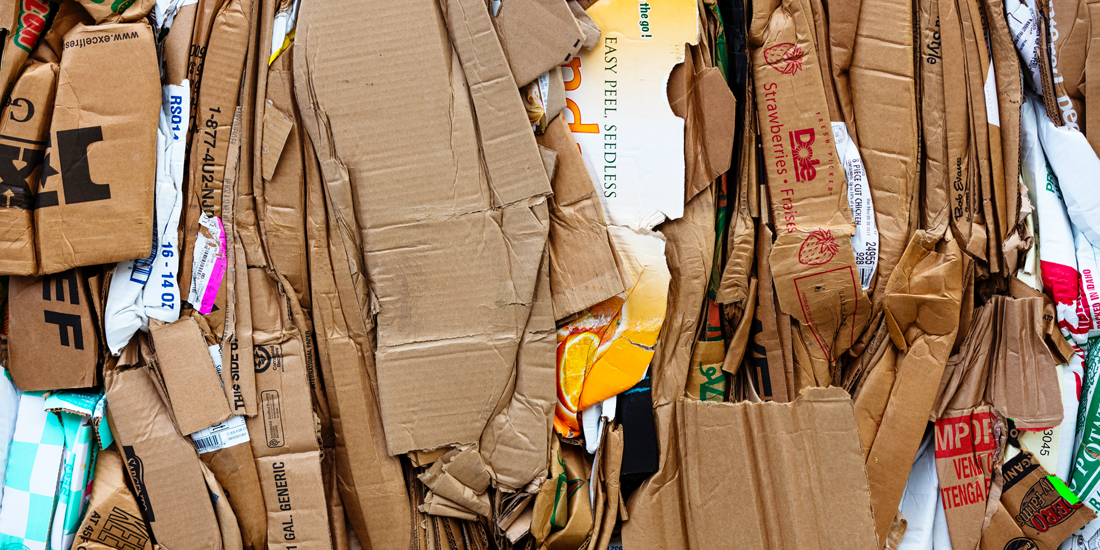
The Weekend Series: five recycling tips to help you help the planet
Recycling is a hot topic at the moment and for good reason. There is set to be a huge shift in how recycling in Australia will be processed, following the news that many types of materials will no longer be accepted for recycling in China. We’d like to make recycling an easier, streamlined process. As Captain Planet said,“The power is yours!” With that in mind, here are five tips on how to properly dispose of some tricky items come recycling day.
Soft plastics
Soft plastics – that is any kind of plastic that can be scrunched into a ball – often trip people up when it comes to recycling correctly. Many local councils outlaw recycling soft plastics conventionally through yellow-topped bins, as they often get caught in recycling machinery. Thankfully, the brilliant humans at RedCycle have partnered up with our larger supermarkets to collect soft plastic materials directly. Plastic shopping bags, biscuit packs (not the trays), bubble wrap, toiler paper packaging and more can be collected through the special bins outside your local supermarket and turned into furniture.
Cardboard
When navigating the recycling process, one material that can also prove to be confusing is cardboard. As cardboard one of the easiest and most environmentally safe materials to recycle, you should always endeavour to do so, but one element reducing the efficacy of our cardboard reuse is the issue of contamination. Food scraps, polystyrene and plastic that are attached to some cardboard can contaminate the process, while wax-coated cardboards (like some fruit boxes) are also unsuitable for recycling. Used pizza boxes are okay to recycle, but you must ensure that all food scraps are removed from the box (it’s okay if there’s an oil spot or two). If you are unsure about whether or not your cardboard is clean enough for the bin, one fun alternative is composting. Contaminated cardboard is a great inclusion in worm farms, bokashi buckets and compost heaps, which helps reduce methane production.
Batteries
Like our appliances, batteries come in all shapes and sizes. Most, if not all, batteries contain toxic metals that need to be disposed of properly, so you should avoid putting them in the bin at all cost. Specialised programs for battery recycling are available that you might not be aware of. Aldi supermarkets offer a free recycling service for any brand of rechargeable and non-rechargeable AA, AAA, C, D and 9V batteries, while Battery World, Transpacific-Cleanaway and SITA have programs that aim to properly recycle computer batteries. Motor vehicle batteries are recycled through a range of recycling centres and at many garages, transfer stations and waste management centres. When purchasing batteries, make sure you go for rechargeable varieties that can be recharged up to 1000 times.
Polystyrene
Packaging materials and other goods made from expanded polystyrene (or EPS) are on the no-go list when it comes to council recycling – so don’t even think about popping it in the bin. In many instances, only large industrial quantities of EPS are recycled and reprocessed in Australia, which places the onus on us to find a drop-off facility sponsored by Expanded Polystyrene Australia. These spots accept all types of EPS, with Queensland’s only EPS recycling centre situated in Acadia Ridge.
Organic waste
While understood to be non-recyclable, organic waste proves to be an issue for our landfills, regardless. Organic matter – such as some paper, plant cuttings, animal hair, wool and food scraps – break down in landfill and produce methane gas and leachate, both substances that harm the environment. The easy solution is composting, which will not only reduce the levels of harmful emissions, but can help reduce the amount of watering and fertilisers in your garden soil, while also improving its fertility and structure. If you’d like tips on how to start composting, just check out this video with Costa Georgiadis.
For more recycling tips and tricks, click on over to Planet Ark.

